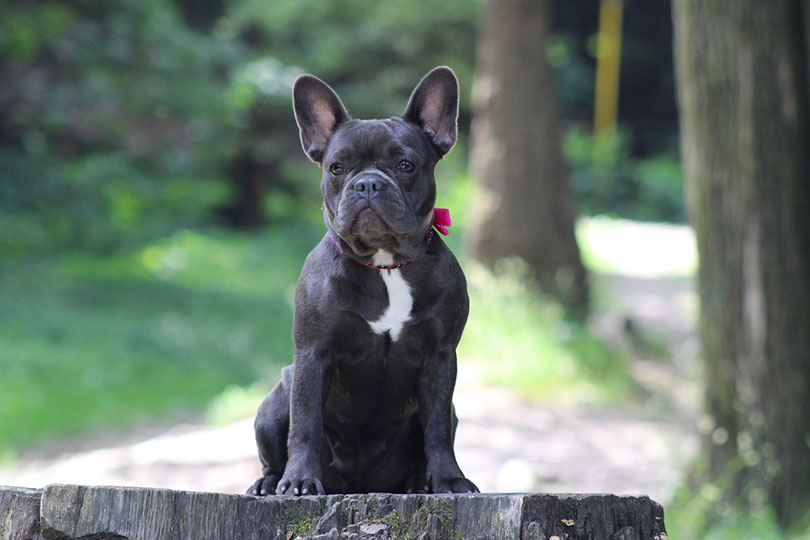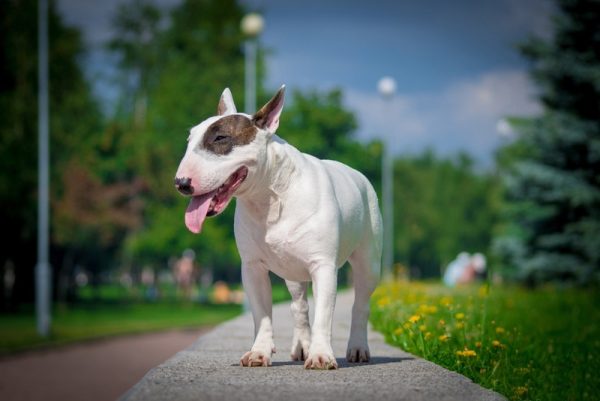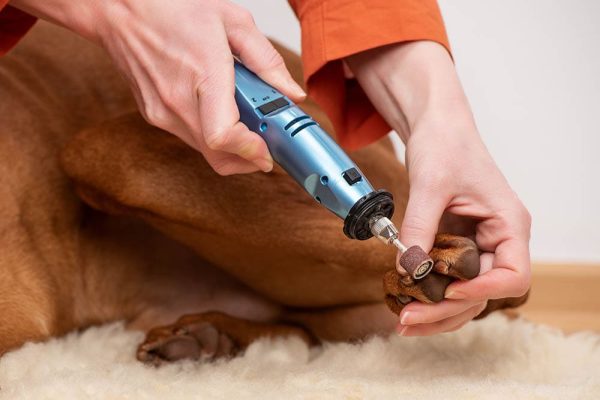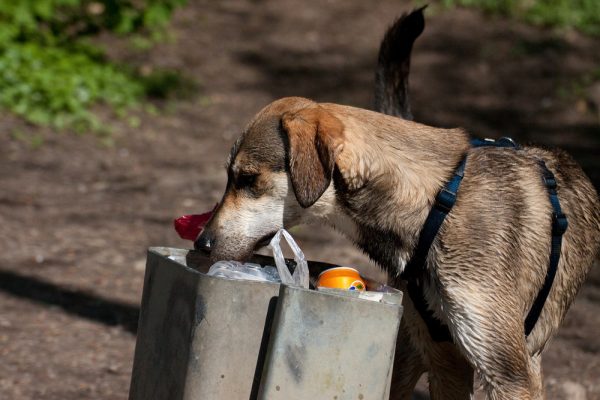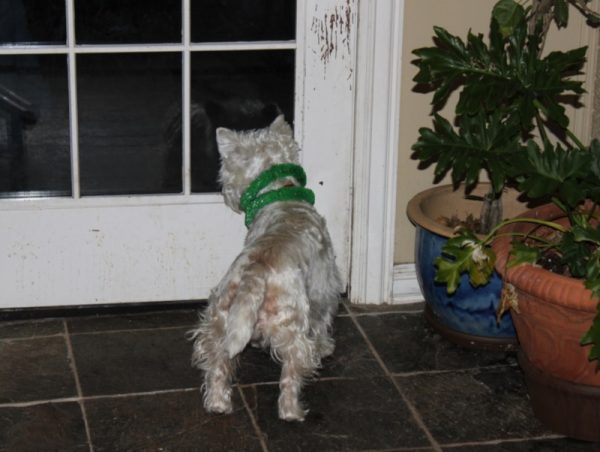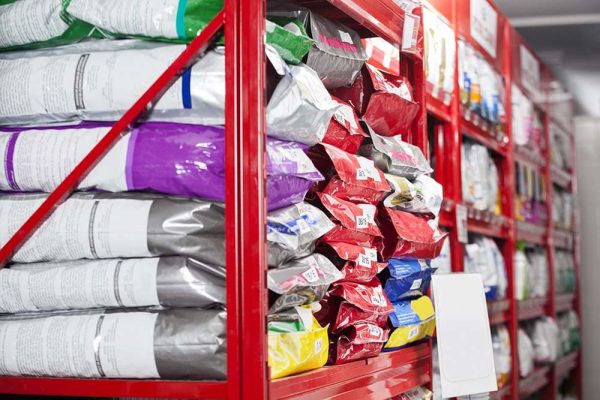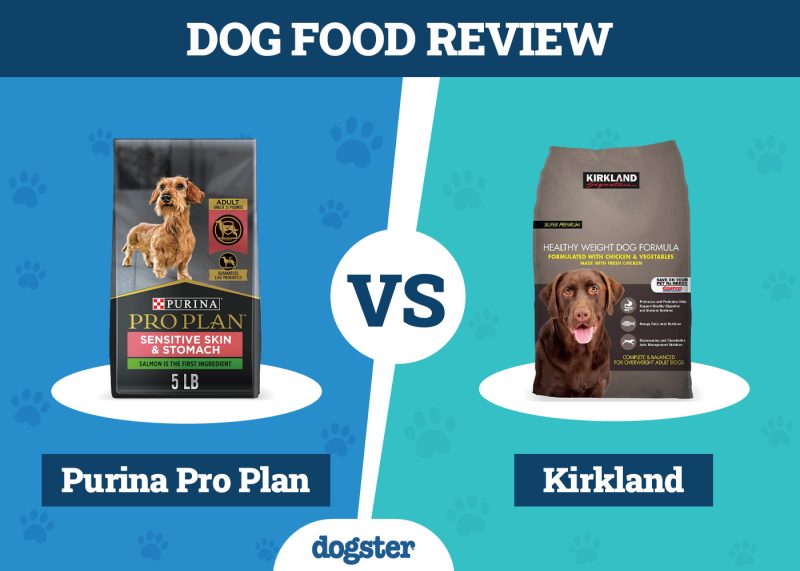French Bulldogs (also known as Frenchie’s) are small-sized dog breeds that appear to be a miniature version of the popular Bulldog and originate from England. This is a friendly dog breed that makes a great lapdog, and they have a gentle nature that makes them a classic favorite amongst dog lovers. French Bulldogs are well-known for their small faces that look like they are smiling, along with large ears, short legs, and a barrel-shaped body typical of the Bulldog breed.
These dogs not only have a fascinating appearance and temperament, but they also have an interesting and unusual history with facts that might surprise you.

The 10 Fascinating French Bulldog Facts
1. French Bulldogs Are Also Known As “Frog Dogs”
Aside from their popular nickname “Frenchie”, this dog breed is also referred to as a “frog dog.” They received this name for their compact appearance with large oval eyes, a round, flattened face, short legs, and a large, rounded belly which looks similar to a large frog. This nickname is also used to describe their posture when they sit down as their hind legs get hidden underneath their round belly. Another common pose they have that has led them to this name is when they lie flat on their stomachs with their hind legs spread out below them.

2. French Bulldogs Can Swim
There is a common misconception that since the typical Bulldog breed is not very water efficient that the French Bulldog struggles too. However, you may be surprised to know that French bulldogs can swim quite well, but are not as good as other dogs. The reason French Bulldogs may have difficulty swimming is due to their body structure. Their heavy bones, flat snout, short legs, and bulky stomachs mean that the French Bulldog has to put in extra effort to swim properly.
3. A Great Watch Dog
French Bulldogs make fantastic watchdogs because they are alert and devoted to protecting their owners. Although French Bulldogs do not look very vicious and can seem innocent, they are known for proudly protecting those they love with courage and protectiveness which makes them the perfect watchdog. Not only will a French Bulldog be on high alert when they sense something abnormal in their environment, but they will also become vocal and run to their owners to show them a potential threat.

4. Not A Big Barker
French Bulldogs do not howl or bark as much as other dog breeds, but they seem to rather have a growling and muffled bark that is not very loud. It can sound as if your French Bulldog is huffing and making a gurgling sound, which is generally what their bark would sound like. This makes them great for owners who do not want an overly loud dog that produces a defined and deafening bark.
However, French Bulldogs are quite vocal and will make noises of excitement which can sound like humming and nasally noise which happens when they try and whine.
5. Stubborn Yet Skittish
The French Bulldog is known for being a protective dog breed while also being social and very affectionate towards their owners. However, this dog breed does not always get along with other dogs and strangers that come into their homes. This can make your French Bulldog bark and whine, or even run away from being petted by a stranger.
They can be aggressive towards other dogs, especially if the two are unfamiliar with one another. French Bulldogs can be stubborn by nature and may need training to become more friendly with other dogs and visitors in your home.
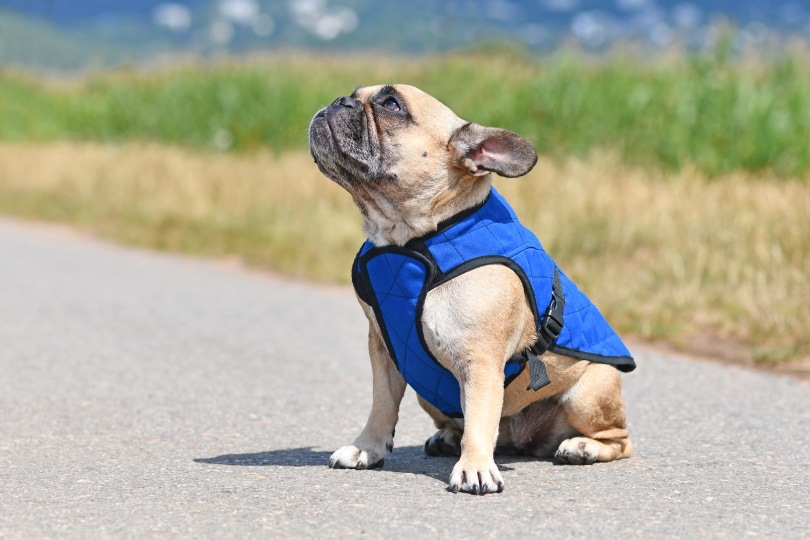
5. Flatulence
The French Bulldog is a brachycephalic dog breed which is why they have a flattened face and snout. The overall shape of their face can affect how they eat their food as it can make them gulp in more air or even alter their breathing when their noses are stuffed in a bowl of food. Since they have delicate, rounded stomachs that are compacted, the way they take in air through their mouths can make them quite gassy.
Certain foods can also cause your French Bulldog to break wind a lot, such as dairy, veggies, and low-quality dog foods.
7. French Bulldogs are Susceptible to Allergies
French Bulldog owners will know just how susceptible this dog breed is to allergies, whether it be to food or environmental allergies. When a French Bulldog suffers from allergies, they suffer from a runny nose and lethargic breathing which can make their breathing sound labored. Their allergies can be triggered by dust, fleas, and mites, which is why they should have regular flea treatments along with grooming.
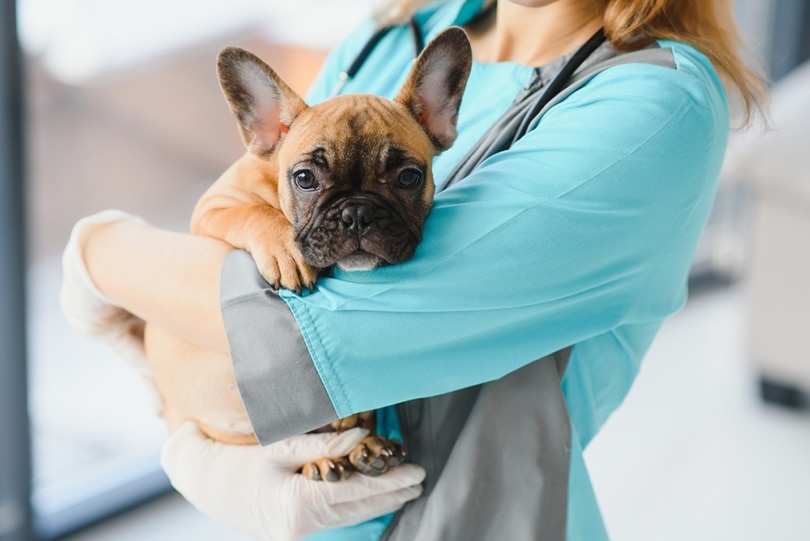
8. A Very Popular Dog Breed
In 2019, French Bulldogs took over the charts as one of the most popular dog breeds and even made Labradors come in second place. Labradors have since regained their spot as number one, but French Bulldogs are proudly placed in the top five in the US. Their popularity has also caused a surge in French Bulldog breeders since this dog breed is in high demand as a pet.
9. French Bulldogs Cannot Give Birth Naturally
French Bulldogs cannot give birth naturally like most dog breeds because they have very small hips. This dog breed does not have the right body structure to carry and deliver a healthy litter of puppies and a pregnant French Bulldog‘s health is at risk during pregnancy, which is why many French Bulldog puppies are born through a C-section by a veterinarian.
There is a high risk of dystocia and difficult births, which makes pregnancies in this dog breed high risk.

10. French Bulldogs Do Not Originate from France
Surprisingly, this dog breed does not originate from France despite its name. French Bulldogs originate from England which makes them English dogs. However, many France breeders are responsible for the breed’s development and distinctive looks which is why they are referred to as French Bulldogs even though it is not their land of origin.

Summary
French Bulldogs make excellent dogs for owners who want a playful, affectionate, and loyal lapdog that has a lot of interesting facts surrounding the breed. This dog breed makes a devoted and quiet companion that suits many different lifestyles which is why they are so popular around the world.
See also:
- Are Hairless French Bulldogs Ethical? Concerns & FAQ
- How Strong of a Bite Does a French Bulldog Have? Facts & FAQ
Featured Image Credit: Paska3610, Pixabay

